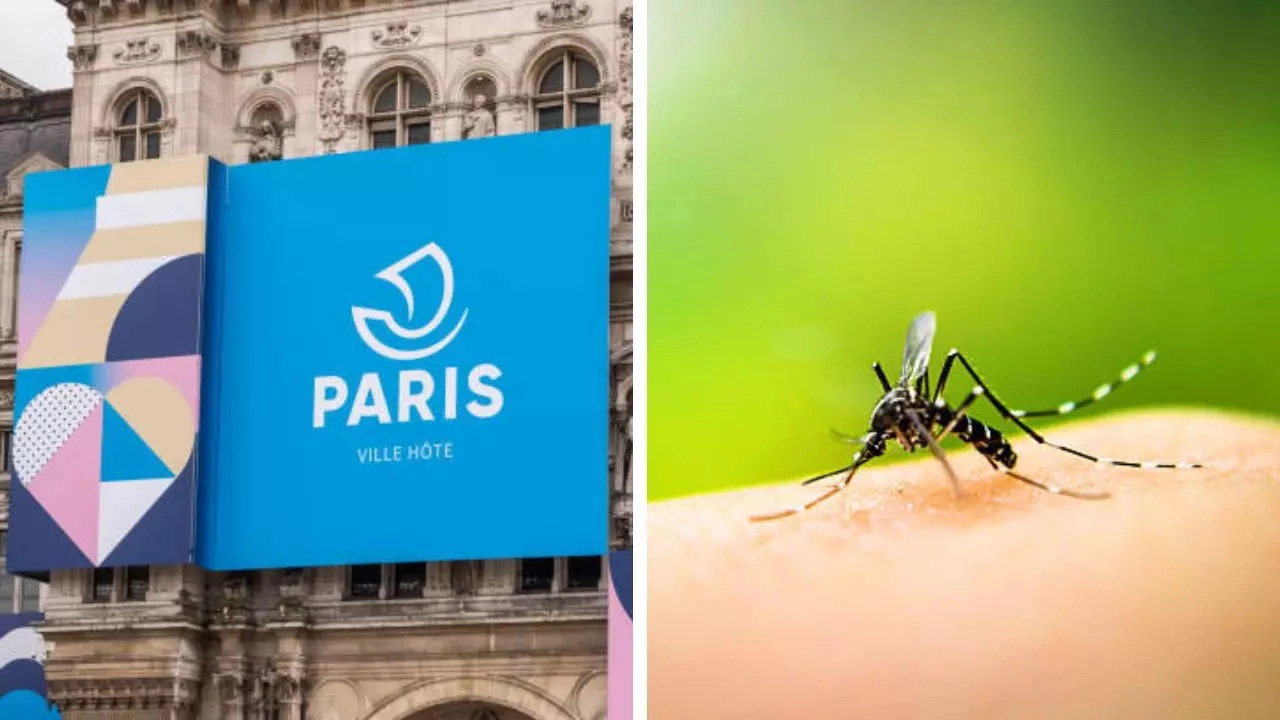Ashima Sharda Mahindra • 26 Jul 2024
France Says Is All Set To Combat 'Super Spreader' Dengue Ahead Of Paris Olympics 2024

French government says it has taken steps to mitigate the risk of this deadly disease by regularly checking hundreds of sites in Paris
Even as France is all set to begin the Paris Olympics 2024 on Friday, July 26, there have been various checks in place to combat the rising threat of dengue fever, which experts fear can become a deadly super spreader.
According to the World Health Organisation, almost 10 million infections of vector-borne diseases have been reported in the Americas in the first six months of 2024 - twice as many cases as there were in the whole of 2023. And so, authorities are concerned that it could cause an outbreak endangering the lives of over 10 million athletes, spectators, officials, and tourists descending on the city for the event.
Experts say global travel, hot and wet weather, and climate change have created good conditions for the Asian tiger mosquitoes that transmit the disease to thrive.
Preventive measures taken by the French government
And so, the French government says it has taken steps to mitigate the risk of this deadly disease by regularly checking hundreds of sites in Paris that are prone to dengue-carrying mosquitoes. Also, the health authorities have identified and deployed appropriate prevention and monitoring measures to ensure the breeding grounds of mosquitoes are destroyed.
Government officials told Newsweek that 34 ecological mosquito traps have been installed at the Olympic and Paralympic Village and 15 at the Marseille Marina. Along with that, France's Regional Health Agency - the Agence régionale de santé d'Île-de-France or ARS says it has been constantly conducting surveillance to fight against mosquitoes carrying diseases. Surveillance includes entomological surveillance of mosquito populations and epidemiological surveillance of patients.
ARS says it is also working round the clock to raise awareness about the disease in areas where there is a proven mosquito presence.
According to studies, the Aedes mosquito – which is the carrier of the dengue virus, has spread considerably over the years, and the number of cases worldwide has increased dramatically. While in 2016 there were 5.2 million cases reported worldwide, halfway through 2024, there have already been 7.6 million cases.
What is dengue?
Dengue fever is an illness spread by the bite of mosquitos infected with one of the dengue viruses. The virus is most commonly found in tropical and subtropical regions, including Central and South America, Africa, parts of Asia, and the Pacific Islands.
So, when a mosquito infected with the dengue virus bites you, the virus can enter your blood and make copies of itself. The virus itself and your immune system’s response can make you feel sick. Doctors say the virus destroys parts of your blood that form clots and gives structure to your blood vessels. This, along with certain chemicals that your immune system creates, can make your blood leak out of your vessels and cause internal bleeding.
Signs and symptoms of dengue
According to experts, even though most dengue infections do not cause symptoms, a few of these include:
- Body rash
- Intense pain behind your eyes
- Nausea and vomiting
- Muscle, bone and joint pain
- Stomach pain
- Throwing up blood
- Nosebleeds and bleeding gums
- Extreme tiredness, restlessness, or irritability
Ways to prevent the spread of dengue
A few ways to prevent dengue is to protect yourself from mosquito bites. Also, you can:
- Use insect repellent
- Wear protective clothing
- Use mosquito nets
- Control mosquitoes